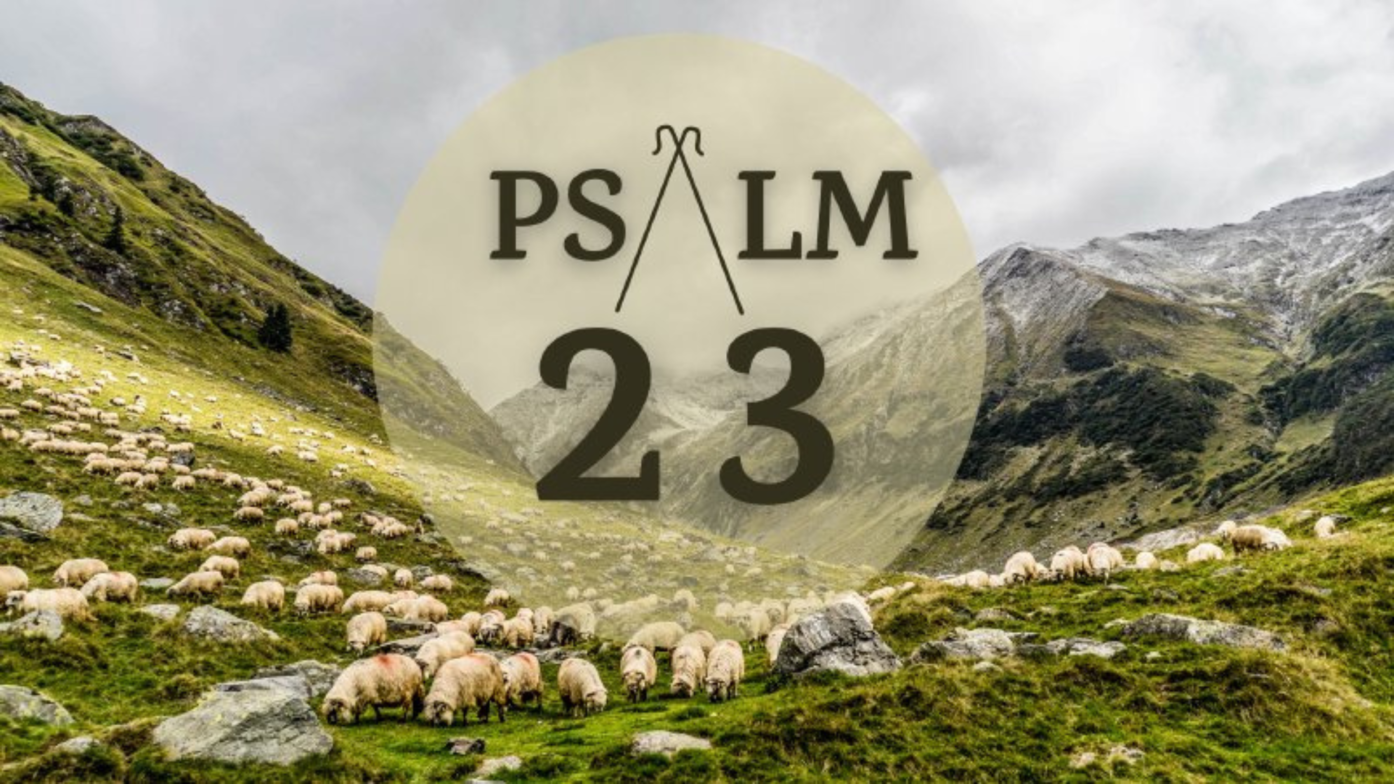
"You prepare a table before me in the presence of my enemies..."
Let’s be real—this is one of the most savage, bold, mic-drop lines in all of Psalm 23. It’s David essentially saying, “God doesn’t wait until the war is over to show up. He cooks dinner in the middle of it.”
But to really understand the depth of this verse, we’ve got to put on our ancient Near Eastern shepherding boots and walk in the terrain David knew. Because when David said “table,” he wasn’t talking about a dining room set with a lazy Susan. In shepherding culture, the “table” was often a flat plateau of rich pastureland—what we would call a “mesa” (Spanish for “table”). It was a place the shepherd prepared ahead of time. Literally.
Here’s how it worked:
Before the sheep ever arrived, the shepherd would make 3–4 trips to that mesa. He would scout the land, pull out any poisonous plants, chase off predators, and make sure that the place was secure for his sheep. He wasn’t winging it—he was preparing it.
Now imagine this: God, your Good Shepherd, is going ahead of you—into that job interview, into your upcoming surgery, into your next season—and preparing the very best in the face of the very worst. He’s not scared off by your enemies. He sets the table while the devil is still talking trash.
It’s not after the battle is won. It’s not once the threat is over. He doesn’t wait for the dust to settle or the haters to shut up. No, He sets the table right there while your enemies are watching. Jesus is already there—unbothered, unshaken, sitting at the table and waiting for you to pull up a chair.
That’s a picture of divine confidence. That’s the kind of Shepherd we follow.
And don’t miss the significance of this: sheep are most vulnerable when they’re isolated from the flock. When they stray, they’re easy targets. That’s why community is vital. Being part of the fold isn’t just nice—it’s necessary. The enemy picks off those who wander alone. Stay close. Stay connected.
And here’s where it gets even better—David doesn’t just stop at the table.
"You anoint my head with oil…"
Now, this is where sheep get a little extra. Sheep are tormented by flies. Not just annoying buzzing—these things would drive them to madness. The solution? Oil. The shepherd would completely cover them in oil, even submerging them in it. It became a protective barrier against pests and parasites. It was life-saving.
The oil didn’t just soothe; it shielded.
Throughout Scripture, oil is symbolic of the Holy Spirit. We see it when David was anointed king in 1 Samuel 16: “And the Spirit of the Lord came powerfully upon David from that day on.” That same Spirit that empowered David to face Goliath, to lead a nation, to write this Psalm—is the same Spirit that wants to anoint you daily.
Because here’s the truth: yesterday’s oil won’t cover today’s flies.
We need a fresh anointing of the Holy Spirit—daily. Not once at camp 15 years ago. Not just when the worship was really good last Sunday. We need the Holy Spirit to be poured out on us afresh every single day to protect us from the spiritual “flies” that try to distract, infect, and irritate us.
Flies like:
-
Offense and bitterness – The Holy Spirit softens hearts before offense settles in.
-
Comparison and insecurity – The Spirit reminds us of our identity in Christ.
-
Fear and anxiety – The Spirit brings peace that guards our hearts.
-
Temptation and sin – The Spirit empowers us to overcome.
Paul says in Ephesians 5:18, “Be filled with the Spirit.” And in the Greek, it’s written in present continuous tense. It literally means: be being filled. Daily. Over and over. Why? Because there are new flies today that weren’t there yesterday.
Ask for fresh oil. Don’t live on leftovers.
"Surely goodness and mercy will follow me all the days of my life..."
What a promise! But let’s be honest—some days, it doesn’t feel that way. When the medical report isn’t great, or the bills are stacking up, or things at home are falling apart, we start to wonder: “Is God’s goodness really following me right now?”
But hear me—just because you can’t see it doesn’t mean it’s not happening.
Romans 8:28 reminds us, “And we know that God causes everything to work together for the good of those who love God...” Not everything is good, but everything works for good. That pain, that pressure, that problem—it’s not wasted. It’s being worked into your testimony. If it’s not good yet, God’s not done yet.
But dig even deeper into this phrase. The Hebrew word translated “follow” is radaph, which means “to chase down,” “to hunt,” or “pursue.” This isn’t casual goodness. This isn’t mercy wandering aimlessly behind you. This is God’s goodness chasing you down.
It’s the same word used when Pharaoh chased the Israelites to the Red Sea. That kind of pursuit. Except this time, it’s not your enemy on your heels—it’s your Father’s goodness and mercy.
The love of God is active. Relentless. Relentlessly kind. Relentlessly good.

